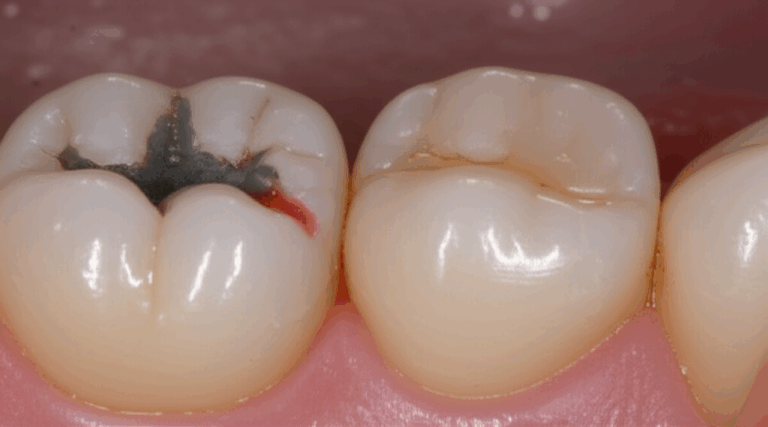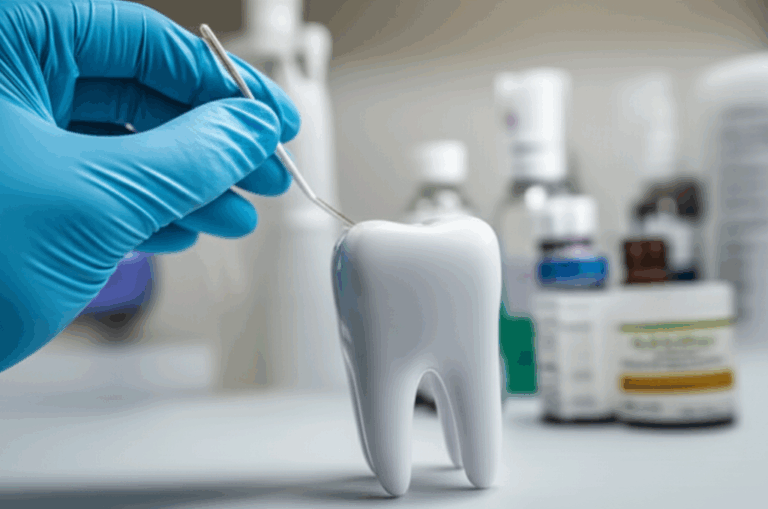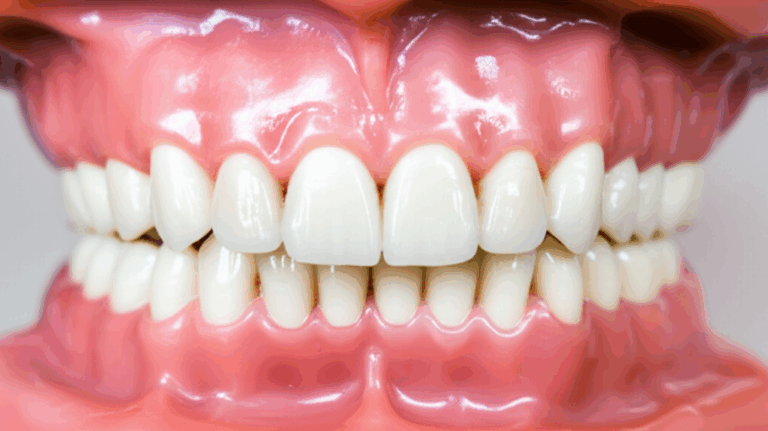
Is Being a Dentist Worth It? A Clear, Friendly Guide to a Big Career Question
Have you ever asked yourself, “Is being a dentist really worth it?” Maybe you’re just starting to think about your job future. Or, maybe you’re already in it—applying to dental school, working through tough science classes, or even paying off your first student loans. No matter where you are, this is a really important and honest question.
You’re not alone. Dentistry looks great from the outside: you can make good money, people respect you, and you get to help people smile. But there’s another side—lots of tough schooling, a pretty big student debt, stressful days, and a ton of paperwork. Is the end result really worth everything you put in?
Let’s break it all down together. In this guide, I’ll walk you through what being a dentist really means, looking at the money, daily life, good things, tough stuff, and more. The goal is to help you decide if dentistry fits your needs, dreams, and way of living.
In This Article
- Understanding “Worth It”: What Do You Care About?
- The Money Side: Dentist Pay, Debt, and Value
- Job Outlook & Security for Dentists
- What Life Is Really Like: Balancing Work & Life, Finding Joy
- The Good Things About a Dental Career
- The Hard Things About a Dental Career
- Looking at Dental Specialties: Is There a Best Fit for You?
- Self-Check: Is Dentistry Right for You?
- Main Points and What to Do Next
Understanding “Worth It”: What Do You Care About?
Let’s start at the very beginning—before we look at good and bad things, money, respect, or stress.
What does “worth it” mean for you?
- Do you want to make good money and feel safe about it?
- Do you want to have time for family or a real break from work?
- Is helping people and feeling respected important to you?
- Would you like running a business, or does that sound stressful?
Your answers matter. Being a dentist takes a lot of time, money, and hard work. Make sure you’re chasing what you want, not just what others say is good.
Things people think about:
- Money and pay: Good paycheck, building up savings, being able to pay back what you owe.
- Feeling good about your job: Helping people, having a respected job, talking to and getting to know patients.
- Free time: Setting your own hours, not working crazy shifts.
- Job security: Not worrying about losing your job during hard times.
- Being in charge: Owning or running your own office.
- Learning: Figuring out new problems, using new tools.
Knowing what matters to you is step one. Remember this as we go through the rest.
The Money Side: Dentist Pay, Debt, and Value
Let’s be honest: Many people ask if being a dentist is “worth it” because of money. You want to know if all the school and loans are going to pay off.
Dentist Pay & What You Can Earn
The numbers look good, but don’t tell you everything. In 2022, regular dentists in the U.S. made about $163,920 a year. People who have a dental specialty, like oral surgeons or orthodontists, can make $250,000–$300,000 or more per year.
But the pay depends on where and how you work:
- Your location matters. Some places pay more than others.
- How you work matters. If you own your own practice, you might make more over the years and make the rules, but it comes with more risk and long hours. Working for a bigger group or company gives you a steady paycheck and maybe less stress about business things.
Specialty can really change things:
- Oral Surgeons: $300,000+
- Orthodontists: $250,000+
- Other specialties: Often $200,000 or up
The Cost of Dental School
Dental school costs a lot—there’s no way around it.
- State schools: $40,000–$70,000 per year (more if you aren’t from that state)
- Private schools: $70,000–$100,000+ per year
If you add up four years of school, living, tools, books, and test fees, it’s pretty common to owe $300,000–$400,000+ when you finish.
Handling Dental School Debt
That’s a lot of debt. The average new dentist in 2022 had about $301,583 in student loans. More than half had $300,000+.
So, how do people deal with this?
- Debt vs. income: New dentists often owe 1.5 to 2 times what they make in their first year.
- Paying it off: Some live simply and work extra at first to pay it down. Others use repayment plans or try for loan forgiveness if they work in certain jobs.
- Refinancing: Once you’re earning, you might get a better loan rate.
It’s hard, but doable. Careful spending, smart planning, and talking to loan experts helps a lot.
What Do You Get Back? (ROI)
Here’s the big question: Will you make enough later to cover all the money, time, and hard work you put in?
Think of it like planting a tree. You do lots of work up front and wait a while. But dentistry can offer:
- Steady, strong pay
- Chances to grow your money and retire well
- Money security you might not get in some other lines of work
But, as with any plan, there are risks—like rising school costs or changes in the market. We’ll talk more about that soon.
Job Outlook & Security for Dentists
Money is key, but you also want a job that sticks around. So, what’s the job market like for dentists?
Is There a Need for Dentists?
The Bureau of Labor Statistics expects about 6% growth through 2032, which is average. That’s about 7,100 new jobs added over ten years.
Why is there still a need?
- Older people: People are keeping their teeth longer and need care.
- Cosmetic dentistry: More people want better-looking smiles.
- Areas without enough dentists: Some towns and regions need dentists badly.
Job Security and Changes
Dentistry is pretty steady, even when the economy is shaky. People might put off a cleaning, but if they have a toothache, they still need a dentist.
But the way the field works is slowly changing:
- Big dental companies (called DSOs): They run lots of offices and handle much of the business. Dentists there get regular paychecks and benefits but might have less control.
- Owning your own practice: It’s less common for new grads than before, but still an option.
Overall, the job looks solid, but it is changing. Being able to adjust is important.
What Life Is Really Like: Balancing Work & Life, Finding Joy
So what’s it really like to be a dentist? This is about your regular days, not just the pay.
Typical Work Hours & Flexibility
Many dentists have pretty normal work hours—think 8 to 5, four or five days a week. It’s usually better for free time than some other medical jobs.
- If you run your own place: You pick your hours, shut the office to take vacation, maybe work less later on.
- If you work for a company or group: Hours are often steady, but maybe less control.
- Owners vs. employees: Owners may work more to handle money, hiring, paperwork, and so on.
A cool thing: Some dentists switch to teaching, public health, or even other industries, finding hours that fit their lives better.
The Work and Dealing With Patients
A dentist does hands-on patient care and needs people skills.
- Working on teeth: Exams, fillings, crowns, pulling teeth, root canals, and so on.
- Building trust: Many people fear the dentist, so being kind and gentle matters a lot.
- Running the office: Owners have to handle hiring, scheduling, supplies, and staying up-to-date on safety rules.
Stress, Burnout, and Your Mental Health
Let’s be real: Dentistry can be stressful.
- You have to be precise: Dental work is tiny, exact work. You have to be careful.
- Many patients are scared: Helping them feel okay takes patience and effort.
- The business side: Running the business takes extra time and energy for owners.
Burnout can happen, but not always. Doing things outside work and talking with other dentists helps. Mental health support is more common these days.
What Makes Dentists Happy
Still, lots of dentists say:
- You help people right away: Fixing pain or making smiles better is rewarding.
- You’re your own boss (sometimes): Many shape their own work life and have choices.
- Learning doesn’t stop: New ways to treat and new tech keep it interesting (like digital dental labs, 3D printing, and new materials).
The Good Things About a Dental Career
Let’s talk about the good stuff.
Here’s what’s great about being a dentist:
- Good pay: This is one of the higher-paying health jobs.
- Respected job: People trust and look up to dentists.
- Control: You can set your own hours, choose your team, and shape what your office is like.
- Clear results: You see the changes you make—ending pain, fixing teeth, or giving someone a new smile (sometimes with the help of an implant dental laboratory).
- Always learning: The job keeps changing, so you keep growing.
- Free time is possible: With some planning, you can have a life outside work.
Many dentists say that helping a patient who was really scared or fixing a child’s smile makes them feel really proud.
The Hard Things About a Dental Career
No job is perfect. Here are some of the tough parts about being a dentist:
- Big loans: It’s common to owe $300,000 or more from school. That shapes what you can do at first.
- Stressful days: Dealing with scared patients, long procedures, and business management is hard.
- Burnout risk: Always focusing and trying to be perfect can wear you down.
- Body wear and tear: Back, neck, and hand pain happen a lot. You need to take care of yourself.
- More learning: You need to keep learning to keep your license and stay current.
- Lawsuits: Getting sued doesn’t happen as much as for doctors, but it’s possible. You need good insurance and to be tough.
- Paperwork and business tasks: Running your own office means more time on forms and less with patients.
- Competition: Some cities have a lot of dentists, so you might need to find your own special thing or even move.
It’s not all bad news, but you should know these challenges.
Looking at Dental Specialties: Is There a Best Fit for You?
Maybe regular dentistry isn’t the whole story. There are lots of types of dental work:
- Oral surgeons: Do surgery, train longer, usually make more money.
- Orthodontists: Straighten teeth, work with patients over years, steady need.
- Endodontists and periodontists: Do root canals and work on gums.
- Pediatric dentists: Work with kids.
- Cosmetic dentists: Focus on smiles, sometimes work with special dental ceramics labs making veneers.
Specialties offer:
- Different kinds of work
- Places to work (hospitals, private offices, universities)
- More schooling (and cost)
- Higher pay for some
It’s smart to spend time watching specialists work before you decide.
Self-Check: Is Dentistry Right for You?
Still interested? Here are some questions to help you figure things out.
Ask Yourself:
- Do you like science and hands-on work?
- Are you comfortable working closely with all kinds of people? You’ll need to be a good talker and listener.
- Are your hands steady? Doing dental work needs careful fingers.
- Can you handle stress? Think about tough deadlines or upset people.
- Are you okay spending lots now for bigger gains later? Be real about whether you can handle debt.
- Do you like or at least can put up with running a business? Especially if you want your own office.
Before You Make Up Your Mind:
- Shadow dentists: Watch what they really do for days or weeks.
- Volunteer: Try helping at charity dental clinics or events.
- Talk to dental students or new dentists: Find out what surprised them or what they wish they’d known.
- Think about your money plan: Don’t just hope things will work out—have a real plan.
If you find happiness in helping people, fixing problems, and working with your hands—and you’re ready for hard work—dentistry could be right for you.
Main Points and What to Do Next
Let’s sum up. Whether you’re planning to apply to dental school, change jobs, or just curious, here’s what matters:
The Big Ideas
- Dentistry is great for people who want good pay, to help others, and have freedom.
- It comes with a big debt and a tough start, though.
- You can have a good life and time off, but you have to be smart about it.
- There are good job chances, but the way the field works is changing—more big companies, less mom-and-pop.
- Most dentists think the rewards (making people feel better, good relationships, feeling proud) make it worth it.
What to Do Now
Maybe you’ll go to dental school. Maybe you’ll help people some other way. Whatever you pick, it should line up with your idea of “worth it.”
One last thing: You’re not alone. Lots of people have faced this question. Sometimes the answer is yes, sometimes no, and sometimes “maybe.” There’s no right answer for everyone.
Ready for the next step? Talk with a dentist, get real world experience, or keep reading. And if you ever need dental work yourself, remember that modern dentistry uses new tech—like 3D printing, digital dental labs, and top-notch ceramics—to help you and your patients smile bright.
Your future—and your smile—are worth thinking about. Go talk to a local dentist, a school advisor, or a mentor. With the right info and a little honest self-thinking, you’ll find the path that fits you best.








